injection molding service
Witcool is a leading global provider of comprehensive plastic injection molding services, offering end-to-end solutions from material verification to final inspection. Our expert team delivers professional support for projects of all sizes and complexity levels.
- Ensures tight tolerances and high accuracy.
- Reduces waste and accelerates production cycles.
- Delivers consistency in mass production.
Trusted by





What Is Injection Molding?
Plastic injection molding stands as the most economical mass-production method for plastic components. The technique works by forcing liquefied polymer material into a precision mold cavity, followed by the removal of the cooled and hardened product. This cyclic operation can be repeated continuously with cycle times measured in seconds, effectively distributing the initial mold investment across thousands of identical parts and reducing per-unit costs to minimal levels.
The process guarantees exceptional product consistency since every piece originates from identical tooling. Compared to alternative manufacturing approaches like CNC machining or additive manufacturing, injection molding provides unparalleled material diversity including extensive options for resin types, color pigments, aesthetic finishes, polishing grades, and surface patterning techniques.
Our custom injection molding services
Create parts of all complexities sized from 3 mm (0.12 in) to 2 m (79 in) with Protolabs Network. Lead times are as fast as 10 days, and we offer local or global production options. Our manufacturing partners typically use 20 to 3,000 ton injection machines, depending on part size, complexity, and volume. DIN 16901-130 and tighter tolerances are available on request.
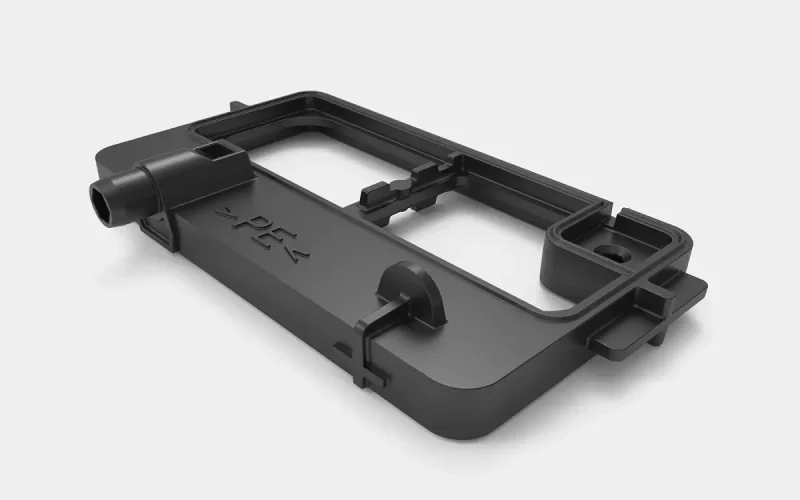
Plastic injection molding
Injection molding is the manufacturing process of injecting high-pressure thermoplastic into a mold. Ideal for high-volume production.
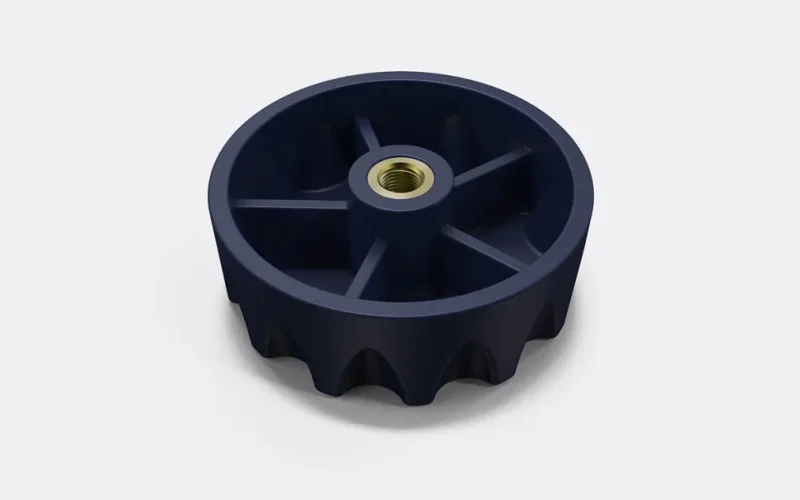
Insert molding
A manufacturing process in which a part is molded around a pre-installed insert in the tooling.
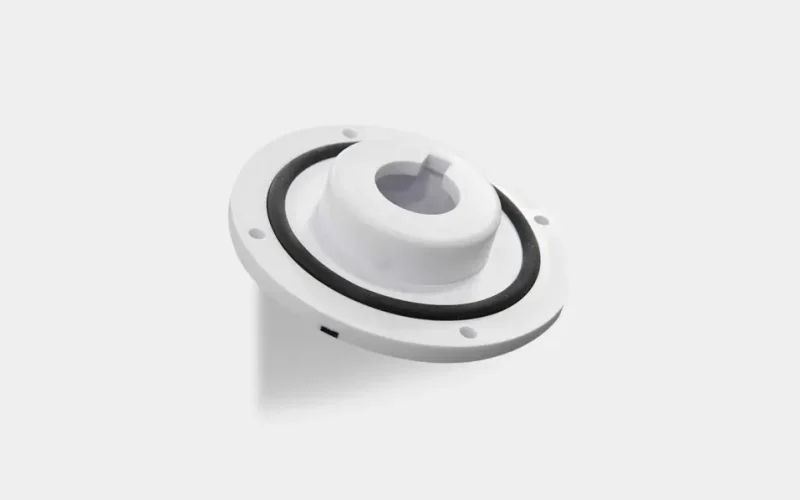
Overmolding
A manufacturing process in which one plastic material is molded over another to create a single component.
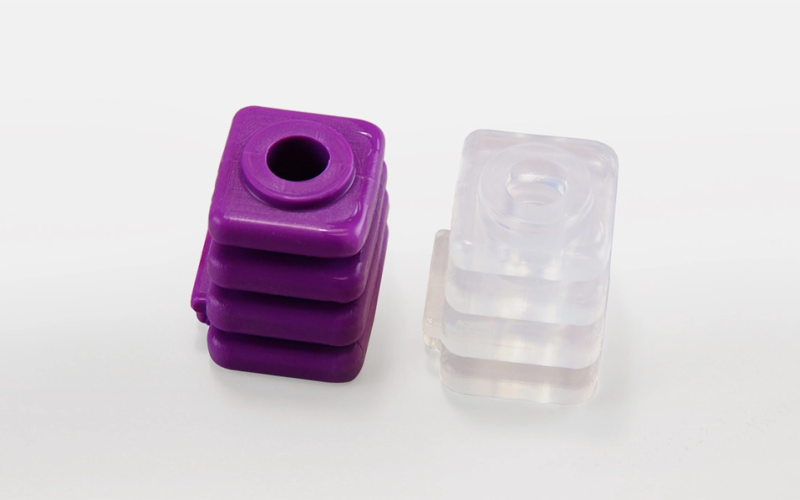
Liquid silicone rubber molding
A thermoset process that involves mixing a two-part solution together to produce flexible and durable parts.
Injection molding materials
Injection molding uses a huge range of plastics, making it ideal for many applications across nearly every industry. We can source thousands of materials on request.
| Property | Materials |
|---|---|
| Impact resistant | ABS, PMMA, PVC, PE, PC |
| Wear-resistant | POM, PEEK, UHMW |
| Dimensional stability | ABS, PBT, HIPS, PPS |
| Chemical resistance | PEEK, PP, PBT, PE, LDPE, PA |
| Rubber like | TPU, TPE, Silicone |
| Cost-efficient | PP, HDPE, LDPE |
| Cosmetic | ABS, PC, HIPS |
Automotive Manufacturing Capabilities
With years of experience in the automotive industry, Witcool has successfully collaborated with Toyota and Tesla, providing high-precision CNC machining solutions. We are committed to quality and innovation, ensuring the production of complex automotive parts that meet the highest standards, and continuously integrating new technologies to meet customer needs.

"Collaboration with Witcool significantly boosted our production efficiency. Their precision, innovative approach, and attention to detail played a key role in the development of our transmission components."
Project Toyota: Precision Transmission Components
For Toyota, we manufactured key transmission components using CNC milling and turning processes. Thanks to our high-precision machining, Toyota enhanced the efficiency and reliability of its transmission system, ensuring the accuracy and durability of the parts.
CNC milling, CNC turning, and additional processing to improve durability and efficiency.
A 15% reduction in production time and a 20% increase in component durability, enabling Toyota to enhance the performance of its transmission system.
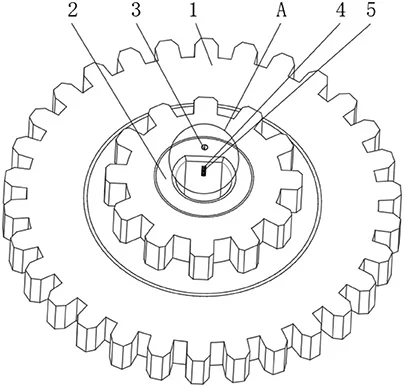
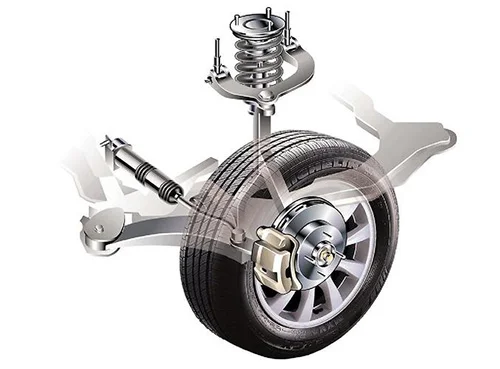

"Witcool's ability to deliver high-quality suspension components was a crucial part of the success of our latest models. Their professionalism in CNC machining and innovative solutions exceeded our expectations."
Project Tesla: Suspension System Components
We provided high-precision suspension system components for Tesla's latest electric models. Leveraging advanced CNC machining technologies and innovative design, our parts met Tesla's stringent performance requirements.
CNC milling, 3D printing for prototyping, and customized surface finishing to ensure premium quality.
Achieved precision of ±0.01 mm, enhancing the stability and performance of Tesla vehicles.
Questions & Answers
Witcool has extensive experience in CNC machining and is ready to offer highly precise solutions for the automotive industry, ensuring quality, reliability, and innovation in every project.
How to maintain high precision in complex parts?
Constant monitoring of parameters and the use of high-precision machines help avoid tolerance deviations. Maintaining a stable temperature is also important to prevent thermal distortions.
What materials are best for automotive parts?
Aluminum, stainless steel, and titanium are commonly used due to their strength and lightweight properties. The material choice depends on the requirements for weight, durability, and corrosion resistance.
How to avoid surface defects during machining?
Selecting the right cutting tools and feed rates is crucial for preventing surface defects. The use of coolant fluids also reduces the risk of damage.
What challenges arise in prototyping?
It is often challenging to achieve perfect geometry and accuracy within a short timeframe. Regular testing and process adjustments help minimize errors during the prototyping phase.
How to handle tool wear when machining hard materials?
Using tools with carbide inserts and constantly monitoring their condition can extend tool life. Choosing the correct cutting speed and feed rate is essential to minimize wear.
How to ensure repeatability in mass production?
Regular calibration of equipment and process automation ensure high repeatability of parts. Quality control at all stages of production is also necessary.


